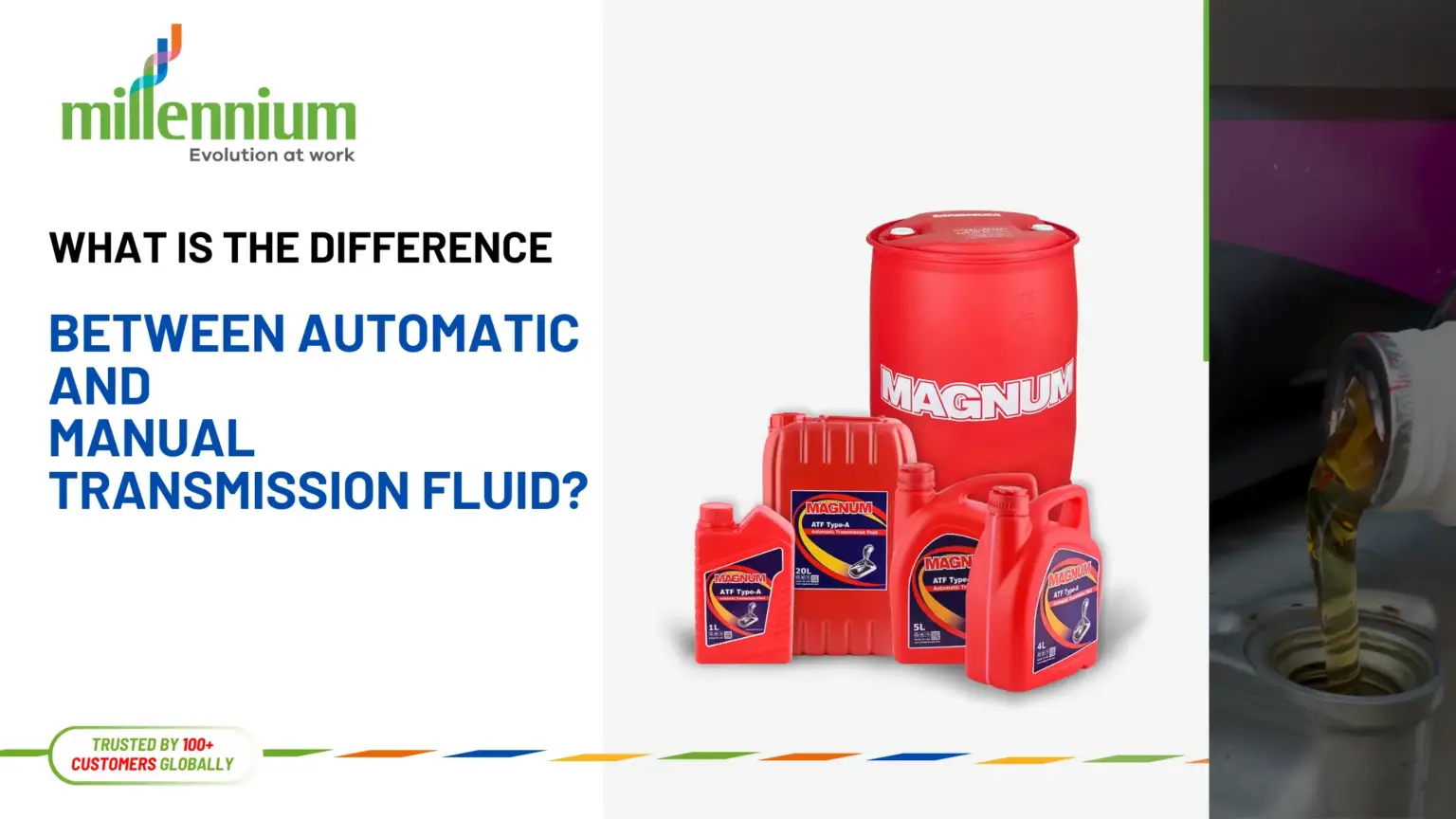What is the difference between automatic and manual transmission fluid?

Transmission fluids are essential lubricants that ensure the efficient operation of a vehicle’s transmission system. They reduce friction, provide cooling, and aid in the smooth engagement of gears. Depending on the type of transmission system—manual or automatic—the fluid used will differ in composition, function, and application. Understanding these differences can help maintain your vehicle’s performance and longevity.
Automatic Transmission Fluid (ATF)
Automatic Transmission Fluid (ATF) is specifically formulated for automatic transmission systems, which rely on hydraulic pressure to change gears. ATF is a multifunctional fluid designed to:
- Lubricate Moving Parts: It reduces friction and wear in the transmission system.
- Facilitate Hydraulic Operation: It transmits hydraulic pressure to control gear shifts.
- Cool the Transmission System: By dissipating heat generated during operation, it prevents overheating.
- Act as a Cleaning Agent: Detergents in ATF help keep the transmission system free of deposits and sludge.
- Provide Friction Modification: It ensures proper engagement and disengagement of clutch packs.
ATF is often brightly colored, usually red or green, to help identify leaks and differentiate it from other automotive fluids. Common ATF types include Dexron, Mercon, and synthetic variants, each catering to specific transmission designs and requirements.
Manual Transmission Fluid (MTF)
Manual Transmission Fluid (MTF) is engineered for manual transmission systems, where gear changes are manually controlled by the driver via a clutch and gear stick. MTF primarily:
- Provides Lubrication: It minimizes wear and tear on the gears, bearings, and synchronizers.
- Ensures Smooth Shifting: By reducing friction, MTF supports seamless gear changes.
- Prevents Corrosion: Additives in MTF help protect the transmission from rust and oxidation.
- Handles High Pressure: Designed for extreme pressure conditions, it maintains performance even under heavy loads.
Unlike ATF, MTF can vary in viscosity and may not have the distinct coloring of automatic fluid. It is typically thicker to withstand the higher torque and pressure in manual systems.
Key Differences between ATF and MTF
- Functionality:
- ATF: Facilitates hydraulic control, lubrication, and cooling in automatic systems.
- MTF: Primarily focuses on lubrication and wear prevention in manual systems.
- Viscosity:
- ATF: Thinner and less viscous, as it needs to flow efficiently through hydraulic circuits.
- MTF: Thicker to handle higher torque and pressure in manual systems.
- Additives:
- ATF: Includes detergents, friction modifiers, and anti-foaming agents.
- MTF: Contains extreme pressure (EP) additives and anti-corrosion agents.
- Temperature Tolerance:
- ATF: Designed for a wide temperature range, maintaining performance under heat.
- MTF: Typically optimized for higher torque loads rather than extreme heat.
- Compatibility:
- ATF: Specific to automatic transmission systems.
- MTF: Designed exclusively for manual gearboxes.
- Maintenance Frequency:
- ATF: Generally requires more frequent replacement due to hydraulic system demands.
- MTF: May have a longer lifespan due to fewer chemical and thermal stresses.
Selecting the Right Transmission Fluid for Your Vehicle
Choosing the correct transmission fluid is vital for the performance and durability of your vehicle’s transmission system. Factors to consider include:
- Vehicle Specifications: Refer to the owner’s manual to identify the recommended type of fluid.
- Driving Conditions: High-performance or heavy-duty usage may require specialized synthetic fluids.
- Climate: Extreme temperatures might necessitate fluids with specific viscosity and thermal properties.
- Manufacturer Recommendations: Use fluids that meet or exceed the manufacturer’s standards for optimal compatibility.
Neglecting to use the correct transmission fluid can result in poor performance, increased wear, and potential transmission failure.
Conclusion
Transmission fluid plays a critical role in the operation of both difference between automatic and manual transmission fluid, but the requirements and formulations of ATF and MTF differ significantly. While ATF supports the hydraulic and mechanical functions of automatic systems, MTF is tailored for the mechanical demands of manual gearboxes. Selecting the right fluid for your vehicle not only enhances performance but also prolongs the life of your transmission. Always prioritize manufacturer recommendations and consider professional guidance to ensure optimal results.



Very nice article. I definitely appreciate this site. Thanks!
Way cool! Some very valid points! I appreciate you penning this article plus the rest of the website
is very good.